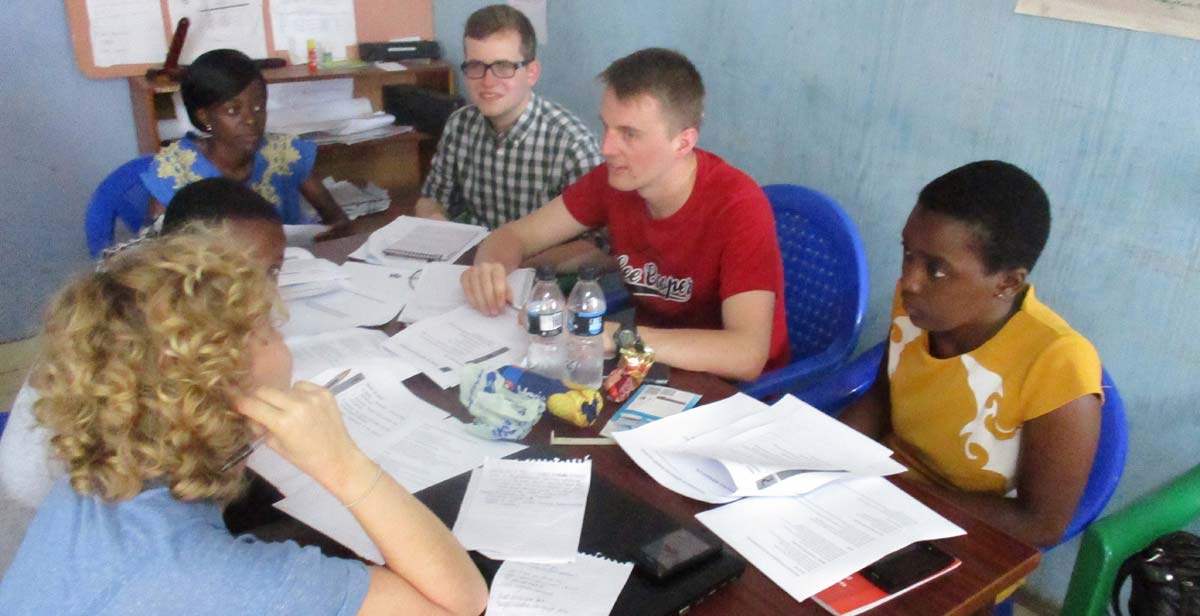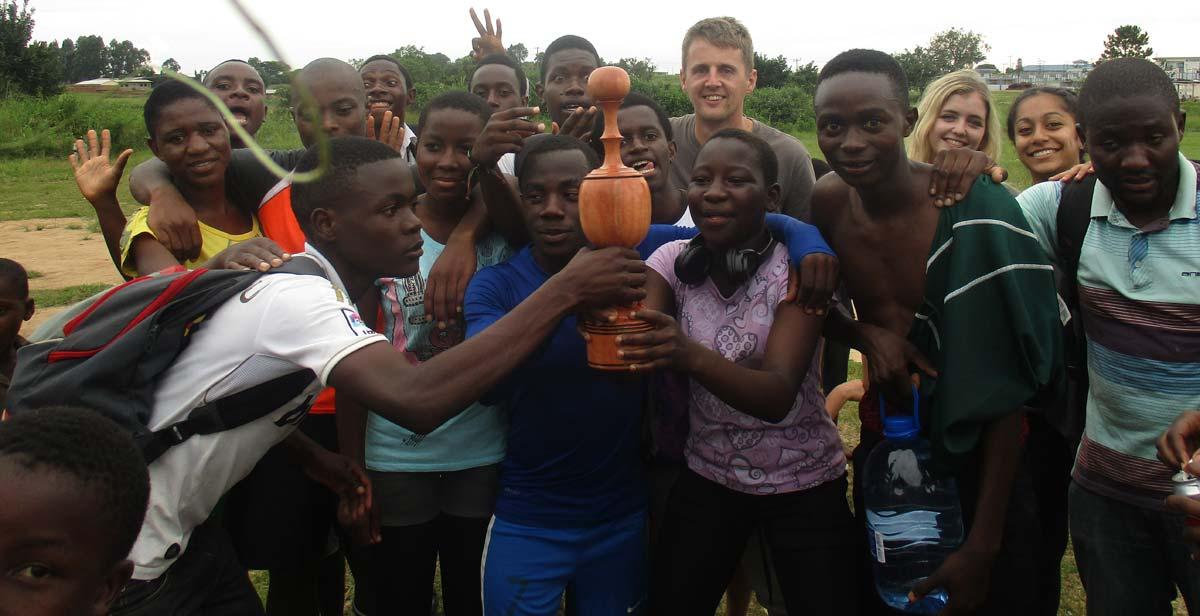Tuesday 8 March was International Women' Day. In honour of this event we had a learning workshop, discussing gender, inequality and issues that women face, both in the UK and Malawi. We firstly spoke of inspirational women and we had a huge range of women, from politicians to athletes and scientists. I personally chose my grandmother, Josephine Speltz. She's always been a strong influence in my life and even at 96 she continues to inspire me with her tenacity and spirit despite the challenges that almost being a century has on the body and mind. She was born and raised in New Zealand, caught sharks, worked as a scientist, moved to England where she knew no one, was twice widowed, is a three-time cancer survivor and has been involved in politics all her life. Her life has been full of adventures and she has suffered much hardship, but this experience has made her such a strong, interesting, funny and opinionated woman.
So many of us are surrounded by women who inspire us every day with their achievements, talents and hard work, whether she is famous or someone we know, but still we live in a world where women are subjugated and struggle to gain equal footing with men.
In the learning workshop we covered a whole variety of topics from things like what the term 'feminism' meant to all of the volunteers, the key issues facing women here in Malawi and in the UK and how pornography and the portrayal of women in popular culture affects the perception of women. We also covered how the concept of masculinity also negatively effects men, highlighting the fact that living in a male dominated world both literally and in terms of ideals, has a negative effect on both men and women.

Some revelations were surprising. For example, the Malawian volunteers couldn't believe that in England women didn't have the vote until 1928; whereas Malawi only became independent in 1964 and was then ruled as a one-party state until 1994, the fact women have always been able to vote since then is unsurprising. One of the main things that came through in both this discussion and other discussions we have had as a group is that there are still so many cultural practices here in Malawi that supress women and keep them in a vulnerable position. For example, there is a tradition, especially in the rural villages, of girls being taught by their aunts to stretch their labia by pulling on them every day until they are a few inches long. This is meant to increase the sexual pleasure of a man when you have sex with them. The female Malawian volunteers themselves don't like the idea of it but said that if you go to marry a man and he discovers you haven't done this that it will indicate you haven't been brought up correctly and that you can be sent back to your village to have this done. All of the UK volunteers were appalled by this and the fact that even girls who lived in a city like Mzuzu felt the need to do this to their body in order to get a husband.
However, on reflection is it all that different from how women in the West alter their bodies for societies approval and by an extension often male approval? Almost all women remove body hair in the UK and therefore their pubic hair. Women can even have surgery on their vaginas to make them more appealing too. It's easy to critique women's role here in Malawi and brand certain cultural practices in other countries as barbaric, but yet the views underpinning ideals here in Malawi and in England are not so different.
There's no doubt that there's a long way to go here in Malawi in terms of gender equality, but there's a long way to go in the UK and the rest of the world too. As volunteers we are trying to do our bit by basing our second community awareness campaign around International Women's Day and trying to encourage women to get HIV testing and counselling (HTC), as they are more at risk of catching HIV here than men, and spreading a positive message about female empowerment. Think about what you can do too!
Written by ICS volunteer Antonia Phelps



